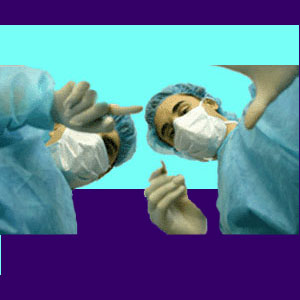
Iatrogenic back pain describes a condition of illness, disease, injury or negative health brought upon a patient as a direct or indirect result of medical diagnosis or treatment.
When it comes to back pain, there are several common varieties of iatrogenesis which contribute to the start of symptoms, as well as the worsening and perpetuation of existing conditions. This article details how medical negligence can cause or exacerbate back pain symptoms.
Iatrogenic Back Pain Beginnings
We, as a society, have already suffered from iatrogenesis from an early age. The vilification of many completely normal spinal conditions has given the average person an unrealistic view of the human anatomy. Instead of seeing the spine as a rugged and durable structure, it is commonly perceived as a troublesome body part full of problematic conditions which cause enduring pain syndromes.
Medical science has shown that many back pain scapegoat conditions rarely cause chronic pain, although they are often blamed for the symptoms. This societal acceptance of medical propaganda has directly led to pain conditions due to psychological conditioning and suggestion.
A famous study of whiplash patients in Europe showed a direct correlation between the anticipation of symptoms and the actual experience of symptoms. If we hear all day that a particular condition, activity, diagnosis or structure is supposed to cause pain, it is simply normal that we will eventually experience pain related to that perception.
Iatrogenesis Nocebo
Many patients discover they have an abnormal spinal condition when being examined for an unrelated health issue. The way in which the diagnosis is presented to the patient is often a prime cause of a pain syndrome’s beginning. If the patient is made to feel like they will experience eventual suffering from the diagnosed discovery, there is little doubt that pain is indeed on the way in the near future.
This diagnostic nocebo effect has been scientifically documented for an endless variety of illnesses and injuries. Patients who go to a doctor with minor pain are often diagnosed with some condition which is presented to them as a progressive degenerative problem. The patient is frightened for their future since the prognosis predicts a worsening symptomatic condition. It is no surprise that most patients do indeed get worse, even if the diagnosed condition has nothing at all to do with their actual pain syndrome.
Iatrogenic Back Pain Diagnostic Error
The main problem faced by the majority of chronic back pain patients is misdiagnosis of the true causative condition of their suffering. While medical negligence makes it possible to get a physical diagnosis wrong, it is far more common for cases of psychosomatic pain to be misidentified as physically-induced conditions.
This occurrence can not be classified as negligence, since doctors are simply not prepared or educated to deal with psychogenic pain syndromes. This problem can only be corrected by enacting a paradigm shift in the medical acceptance of psychogenic pain and the medical education system. Don’t hold your breath for either of these events to occur.
Other Forms of Iatrogenic Back Pain
There are many other specific examples of iatrogenesis in the back pain industry:
Unnecessary and unsuccessful surgeries.
Prolonged and unnecessary back pain treatment regimens.
Over prescription of pain killers leading to addiction, disease and possibly death.
Disability caused by surgery
Creation of a very real physical disorder when treating a minor or even mistakenly identified condition with drastic surgery. Example: A spinal fusion which creates real pain and stress on surrounding spinal levels, especially when the original fusion was not even medically warranted.
My Experience with Iatrogenic Back Pain
I was diagnosed at age 16 with a variety of spinal conditions thought to be the cause of my back ache. My symptoms immediately got worse after diagnosis and my life fell into a downward spiral based upon one negative diagnosis after another by literally dozens of doctors and therapists. I thought I was doomed to a life of progressive pain and disability as a direct result of the information given to me by my doctors.
It took years of independent study on my part to realize that I had been grossly misinformed about the nature of my spinal conditions. I eventually was able to learn the true nature of my pain, repudiate the previous diagnoses, and recover 100%, despite 18 years of previously unsuccessful medical and complementary treatments. I cured my own pain using the proven techniques of knowledge therapy.
The best facet of knowledge therapy is that there is no room for any iatrogenic error in the program. The patient is in control of their own therapy and the knowledge itself works to cancel any diagnostic nocebo effect.





